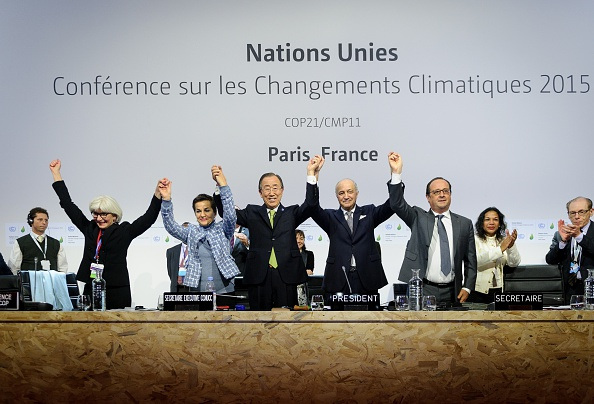On December 12th 2015 the governments of 196 nations have finally decided to work together against climate change, a problem known to exist for more than four decades… starting in 2020! But can this be it? Have our governments really just managed to conserve a habitable planet for humans? Or is it too early to pad ourselves on the back just yet?
While it should be acknowledged that this is a big step forward, compared to previous agreements, the deal holds next to no legally binding regulations and the countries mainly responsible for the current state of the environment managed to avoid legal responsibility. Leveling off of emissions will not happen until the second half of this century. Even insurances that are mentioned in the agreement will not cover the main risks of climate change; rising sea levels, vanishing drinking water and droughts. Leaving small countries vulnerable. Only time will tell if this agreement is truly a success. I sure hope it will be, but sadly I’m pessimistic.
But what can we do in the meantime? We don’t have to wait for governments to start acting, do we? We all have the power to make changes every day, no matter how incremental they might seem.
Every time we step inside a car, we can ask ourselves if there are other means of transportation we could be using instead. Maybe we can spend the next vacation exploring the country we already live in, instead of flying half way across the globe.
The livestock sector is the largest emitter of greenhouse gases. So, every time we are about to buy or order meat we can stop and think about a vegetarian alternative instead. This does not mean we cannot eat meat anymore. We can eat as much or as little meat as we feel comfortable with. But, if we just stop and consider the consequences every single time, I’m sure more often than not we are going to choose the vegetarian meal instead.
About 1/4 of all food purchased ends up in the trash. That’s not only a waste of resources, but also a waste of money. Between eating leftovers and small scale biogas plants, there are plenty of ways to re-use food waste.
We can look for sustainable alternatives to big banks who keep investing in fossil fuels and move our money to those investing in sustainable small and large scale projects instead. Or, if we’re too attached to our bank, because the IBAN we have is just soooo perfect, we can at least voice our desire for more sustainable investments to our bank. There are energy providers out there who re-invest their profit in the establishment of more sustainable energy sources instead of paying big bonuses to their managers. They deserve more customers.
And finally, remember to ask yourself: “Do I really need another t-shirt?”
Learning about all of these alternatives is not only the right thing to do, it can be a lot of fun and very satisfying as well!!
Change the world! I know you can!
This post is written by Konrad Luders.



